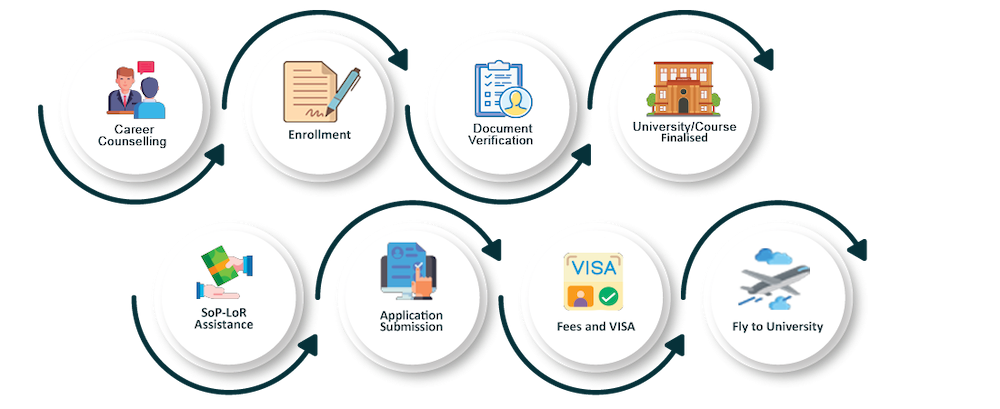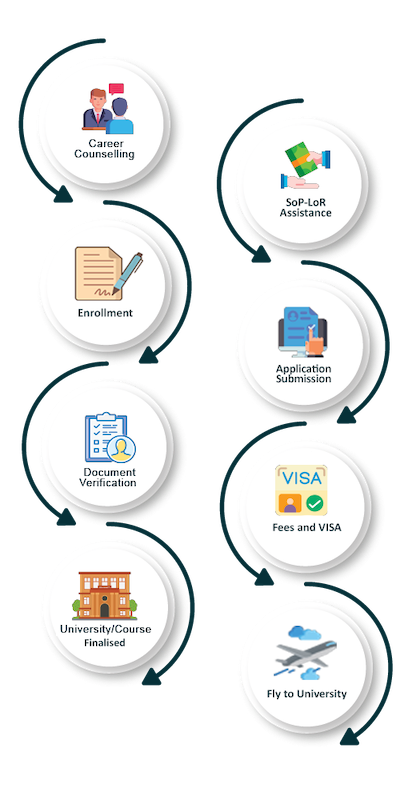This institution's programme included both a pre-apprenticeship and a pre-employment track. New England's first community college opened its doors in May of 1975. There was a contest to choose what the university should be called. The name "Northern Lights College" was chosen from among several other potential names for the institution. This organisation has ties to both the BCC and the ACCC.
There are a total of five main campuses and three satellite locations that make up Northern Lights College. Dawson Creek is home to the pioneering campus. Located on the eastern border of the Peace River Regional District, the city is an important economic and cultural hub. Fort St. John serves as the site of the second campus. Located in northern British Columbia lies the city of Fort St. John. It's the busiest and most populated of the municipalities in the Peace River Regional District. Fort Nelson is the site of the third campus. Located in northeastern British Columbia, Fort Nelson is a Canadian town. Tumbler Ridge is the location of the fourth school. At the base of the Canadian Rockies is this district municipality. Chetwynd, the fifth campus, is located in a similar area at the base of the Canadian Rockies.
The three Access Points may be found in the cities of Atlin, Dease Lake, and Hudson's Hope. Northern Lights College is home to three distinct Centers of Excellence: the Centers of Excellence Aerospace, the Centers of Excellence Clean Energy Technology, and the Centers of Excellence Oil & Gas. Aboriginal Gathering Spaces may be found on the Fort St. John, Fort Nelson, Dawson Creek, and Chetwynd campuses of the institution. Northern Lights College is supported by its own foundation. Money from a variety of sources allows it to give out scholarships to deserving students. This organisation is useful for advancing higher education in many different areas. Funding might come from the sale of assets or monetary donations. Scholarships are available to Aboriginal women at the institution as well. Northern Lights College’s programs are meant to help students get the theoretical grounding they need, as well as the practical experience they need, to make a smooth transition from student to working professional.
The Times Higher Education World University Rankings and the Academic Ranking of World Universities both rank Northern Lights College as one of the best colleges in the world. The university has kept these rankings for nearly ten years with very little change.

QS
1307

THE
1458

US News
193
| Course | Duration | Fee/Year |
|---|---|---|
| Bachelor in Practical Nursing - Gerontology | 24 Months | CAD - 35,761 |
| General Arts and Sciences Certificate - Humanities (English | 12 Months | CAD - 9,788 |
| Certificate in Business Management - Entrepreneurship | 7 Months | CAD - 10,584 |
| Advanced Certificate in Management - Strategic Management | 12 Months | CAD - 10,584 |
| Certificate in Engineering - Civil Engineering | 12 Months | CAD - 10,766 |
| Advanced Certificate in Wind Turbine Maintenance - Wind Turbine Technology | 13 Months | CAD - 17,625 |
| Certificate in Heavy Mechanical Trades Foundation - Diesel Engine Repair | 12 Months | CAD - 11,057 |
| Advanced Certificate in Culinary Arts - Cooking Techniques | 12 Months | CAD - 11,742 |
| Diploma in Criminology - Crime and Justice | 24 Months | CAD - 10,584 |
| Associate of Arts Degree in Health Studies - Health Promotion | 24 Months | CAD - 11,642 |
| Course | Duration | Fee/Year |
|---|---|---|
| Business Management Post-Graduate Diploma - General Management | 24 Months | CAD - 10,759 |
| Business Management Post Degree Diploma - Health Administration Specialization - Healthcare Policy and Governance | 24 Months | CAD - 10,936 |
| Business Management Post Degree Diploma - Information Technology Specialization - Software Development and Management | 24 Months | CAD - 10,936 |
Among the British Columbia colleges, Northern Lights College stands out for its extensive selection of courses (54+) leading to various levels of certification and education. Every year, North Lights College welcomes new students for the fall, winter, and spring terms, beginning in September, January, and May. Some of its best-known programs are business management, oil and gas training, and health and human services.
Any interested party may obtain an application form from Northern Lights College. It is crucial that overseas students show they are proficient in English. Also, applications have to be sent to the school at least six months before the course starts.


Northern Lights College students get a 13% yearly return on their time and money investment. Students get a total of $3.10 in greater future wages for every $1 invested in Northern Lights College throughout the duration of their working lives. Northern Lights College improves students' lives and enhances their lifetime earnings. It helps taxpayers because a growing economy means more tax money and less need for social services that taxpayers pay for. Finally, it helps to keep both the local and provincial economies alive.
The hourly rate at Northern Lights College varies from roughly $20.98 for coaches to $46.66 for human resources specialists.
B.O.A. Merrill Lynch, Accenture, and HSBC Stemcell Technologies is Northern Lights University's most successful corporate recruiter.
| Course | Annual Package |
|---|---|
| Nursing Instructor | $45.78 per hour |
| Personal Care and Home Health | $46.55 per hour |
| Business Manager | $46.66 per hour |
| Marketing Communications Coordinator | $22.31 per hour |
| Animator | $42.79 per hour |
| Business Teacher | $42.40 per hour |
| Technical Support Specialist | $23.68 per hour |
| Scientific Research & Development | $45.25 per hour |
| Media & Communications | $23.48 per hour |
| Food Preparation & Service | $27.74 per hour |
International students are eligible for a variety of scholarships, honors, and bursaries from the institution. Most scholarships are awarded based on merit, academic performance, and the recipients' financial requirements. Students must submit their scholarship applications by the end of January. The following are the scholarships provided by the NLC: Entrance Awards: NLC Graduate Awards: Emergency Assistance: New Student Awards: External Awards:
The institution has four admissions periods: fall, winter, spring, and summer. The application deadlines are as follows: Fall (September to December) Mid-August Winter (January to April) Early-March Spring (May to August) Mid-April Summer (July to August) Early-July Deadlines vary by course and may change frequently. We recommend that you check the university's website for specific deadlines.
After sending in their applications, students will hear back from the school in a few days or weeks. Students may use the university's admission site to verify the progress of their applications.
The institution has not released information about student enrollment or the overall number of students enrolled. However, the institution has 1.8% minority students, 21.6% provincial students, and 76.6% white, African-American, and foreign students.
Students are permitted to work both on and off campus, depending on their immigration status. During the semester, students may work a maximum of 20 hours per week. During vacations and holidays, students may work full-time, or 40 hours each week.
PICTA, which is now called PTIB, is a private college for career training. Northern Lights College, on the other hand, is a public school for people who have already finished high school.
Students and teachers meet for free over a worldwide phone line at a set time and day for teleconferenced lessons, which can last anywhere from 12 to 2 hours.